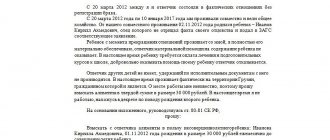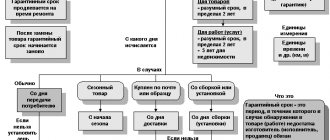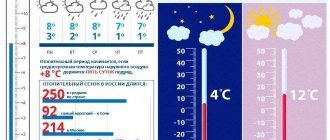For almost two years now, the COVID-19 pandemic has been raging in Russia, and throughout the world. It has exacerbated chronic diseases not only among people, but also among entire countries. In Russia, problems suddenly emerged with the reliability of statistics, and also with the financing of medicine.
We learned about a phrase called “excess mortality,” and it is directly related to the quality of work of people in white coats. For example: how long should an ambulance travel to respond to a call and can it ignore it?
A state of emergency has not been declared (yet). This means that peacetime legal acts must apply. It was them that I thoroughly analyzed and learned a lot of new things. I hasten to share my conclusions.
In what cases can you call an ambulance?
The work of Ambulance in Russia is regulated by Order of the Ministry of Health of Russia dated June 20, 2013 N 388n. During this time, it was amended four times: this is not much by the standards of domestic lawmaking. The order approved the procedure for providing emergency medical care. According to clause 2 of the document, it is carried out in any situations requiring urgent medical intervention: in case of injuries, accidents, poisoning, etc.
.
d
.
In paragraph 5 it is noted that medical care can be emergency (for life-threatening conditions) and emergency. Clause 11 specifies cases when doctors must arrive to the patient immediately. Emergency assistance is necessary in case of disturbances in consciousness, breathing, circulatory system, poisoning, burns and in some other situations.
Even during the first wave of coronavirus, the Order of the Russian Ministry of Health dated March 19, 2020 N 198n was released. They established a temporary operating procedure for medical organizations to prevent COVID-19
. This Order introduced technical requirements for the work of doctors, without any relaxation in terms of current legislation.
How to reduce the burden on doctors?
The most obvious thing is to wait until the end of the pandemic. But this problem is systemic in nature, and no coronavirus - or rather, the absence of it - will save the situation.
“We must finally pay decent wages and engage in staffing, increase the number of teams, because today it is formally underestimated. But this requires a real increase in funding for ambulances. There is no other quick way out,” Konoval notes.
According to an employee from the ambulance industry, it is necessary to build a healthcare system based on the principle of unity of command. In some regions, for example, in St. Petersburg, district medicine is subordinated to the district administration, and hospitals and the city ambulance station are subordinated to the health care committee.
“It’s hard to establish harmony. Somewhere there is an abundance of resources, and somewhere there is a shortage, regardless of the tasks at hand. It is necessary to create inter-district health authorities. This would partially solve the problem,” the expert is sure.
Nikita Strogoff
How long should an ambulance travel?
Clause 6 of Appendix No. 2 to Order of the Ministry of Health No. 388n states that doctors must arrive to the patient no later than 20 minutes after the call
when it comes to emergency assistance. Clause 4 of Appendix No. 3 to the Order stipulates that ambulance stations must be located so as to withstand a 20-minute supply. However, additional wording allows you to deviate from this rule:
Important!
In territorial programs, the arrival time of emergency medical teams can be reasonably adjusted taking into account transport accessibility, population density, as well as climatic and geographical features of the regions.
The arrival time of emergency assistance is no more than 120 minutes. In fact, this interval may not be maintained if this is justified by specific conditions (too many calls, impossibility of travel). In some cases , the team may not arrive at all if the reason for the call is:
- dressing, removing stitches and performing other planned medical procedures;
- acute toothache;
- a disease with a normal course;
- conducting an examination for alcohol or drug intoxication;
- other cases when the patient’s life is not in danger.
How to defend your right to medical care during the coronavirus pandemic
October 20, 2020
I called an ambulance. How long should she arrive?
According to current regulations, to provide emergency assistance (if there is a threat to the patient’s life), the team must arrive within 20 minutes; in case of emergency assistance (when there is no threat to the patient’s life), the waiting time increases to two hours.
“It should be especially noted that in some cases the ambulance has the right not to arrive,” said Maria Spiridonova, a member of the Russian Lawyers Association (RLA).
— For example, if a call is used to subsequently obtain a forensic or expert opinion, establish alcohol or drug intoxication, issue a sick leave certificate and other medical certificates.
The team is not obliged to service non-core calls related to acute toothache, bandaging or injections, the lawyer added. What to do if the ambulance is not coming?
If the wait exceeds the standards, first of all, you should contact the dispatcher again and report what is happening.
Perhaps he can quickly resolve the issue. — The right of citizens to receive free medical care in state and municipal institutions is directly enshrined in paragraph 1 of Art. 41 of the Constitution of the Russian Federation,” emphasized Maria Spiridonova. The work of the ambulance, the lawyer added, is regulated by a whole list of regulatory documents, which includes the law “On the fundamentals of protecting the health of citizens in the Russian Federation” (Article 35), Russian Government Decree No. 1492 dated December 8, 2017, and orders of the Russian Ministry of Health dated March 26, 1999 No. 100 and dated June 20, 2013 No. 388n. “If an ambulance refuses to arrive when called, or if the call was accepted, but the ambulance never arrived, there are several authorities to which a complaint can be sent: the management of the ambulance station, the Ministry of Health, the police and the prosecutor’s office,” the lawyer clarified. — Criminal legal consequences are also possible. Unlawful refusal to provide medical care is a criminal offense. In particular, she explained, violators can be prosecuted under Art. 124 of the Criminal Code of the Russian Federation “Failure to provide assistance to a patient. If the unlawful actions (inaction) of ambulance workers cause moderate harm to the patient’s health, or it worsens significantly, then a complaint should be filed with the police. — The general recommendation is to contact all authorities in writing in the form of a pre-prepared application in two copies, one of which is handed over at the destination, and the second is marked with acceptance. It will then be proof that the official appeal was accepted,” Maria Spiridonova emphasized. The doctor did not take a coronavirus test, although I have signs of acute respiratory viral infection.
Where to contact? On the hotline for questions related to coronavirus (8-800-200-01-12), the Izvestia correspondent was asked to contact the local ministry or health department, and also report the violation to Rospotrebnadzor.
“If there are appropriate symptoms, a doctor should in any case take samples to test for coronavirus,” the hotline emphasized. Lawyer Maria Spiridonova explained that, according to the explanations of the territorial divisions of the Ministry of Health, the test is not a prerequisite for ARVI. It is prescribed in case of arrival from other countries, contact with patients with COVID-19 or potentially infected within the last two weeks. In addition, tests will be taken for moderate or severe forms of ARVI and community-acquired pneumonia. People over 65 years old will be tested for coronavirus if they have symptoms of a respiratory infection. — Separately, the Ministry of Health notes that the indications for taking samples for analysis are determined primarily by the attending physician. Such recommendations are already practically a standard,” the lawyer emphasized. I have coronavirus, but I feel fine and don’t want to isolate.
Will I be punished for violating it? Yes.
For violation of sanitary and epidemiological rules under Art. 236 of the Criminal Code of the Russian Federation, punishment can be a fine of up to 700 thousand rubles, restriction or imprisonment for up to two years, as well as forced labor for the same period. “All patients with confirmed COVID-19 undergoing treatment at home personally sign Rospotrebnadzor’s orders to comply with the isolation regime and connect the monitoring system for patients with COVID-19,” the Moscow Department of Health told Izvestia. Even if there were indications, I was not sent for a CT scan and was not connected to a ventilator.
How to deal with medical negligence? A patient who believes that his rights are being violated has the right to write appropriate complaints and statements addressed to the head of the medical institution where the doctor works.
It may also be advisable to contact the Ministry of Health. “But it is worth understanding that it is the attending physician who, taking into account the results of studies, tests, and the dynamics of the disease, must decide whether to refer the patient to a particular procedure,” noted lawyer Maria Spiridonova. The capital’s Department of Health added that when visiting a patient with a confirmed diagnosis of COVID-19, a doctor examines him. He decides on the need for hospitalization, referral for a CT scan, or the possibility of treatment at home. “Patients undergoing treatment at home are sent for a CT scan as prescribed by a doctor if they have symptoms of deterioration,” the department clarified. — Artificial ventilation is not a means of treating or restoring damaged lungs. The decision to connect to a ventilator can only be made by a doctor. Typically, this measure is used only for the most critically ill patients in the intensive care unit. For patients with difficulty breathing or shortness of breath, if necessary, the doctor can prescribe oxygen support - it comes in different types and depends on the degree of respiratory failure and lung damage, the department noted. Medicines for coronavirus are very expensive.
I'm afraid that I won't be able to pay for treatment if I get sick. According to the website stopcoronavirus.rf, if you are sick with coronavirus, all necessary medications are provided free of charge under compulsory medical insurance.
“Patients diagnosed with COVID-19 who are being treated at home receive antiviral drugs as prescribed by doctors,” the Moscow Department of Health reported. — Medicines are given to patients with coronavirus infection free of charge when a doctor visits them at home or when the patient visits an outpatient CT Center. The decision to prescribe certain drugs can only be made by a doctor and only after examining the patient, the department emphasized. The course of treatment and dosage depend on the severity and course of the disease. They refused to serve me at the checkout without a mask and forced me to buy one on the spot.
Is this legal? Yes, but you are not required to purchase the mask from this store.
— The store may require you to wear a mask or offer to purchase one. Store sellers can legally refuse to serve a customer without a mask, explained Maria Spiridonova. The seller who served me did not have a mask covering his nose.
So it is possible? No.
According to the virologist, professor at the National Research Center for Epidemiology and Microbiology named after N.F. Gamaleya by Anatoly Alshtein,
a mask that does not cover the nose is useless and does not prevent the spread of the virus.
“They don’t wear a mask like that, you might as well wear it around your neck,” he said. What is more effective - a mask or a respirator?
A respirator is more effective, says virologist Anatoly Alshtein.
But “it’s actually harder to breathe in it,” he added. “A medical mask needs to be changed every three to four hours, a fabric mask at least once a day,” the expert added. When will the epidemic end?
It's difficult to predict. However, according to Professor Anatoly Alshtein, although the indicators are growing and this trend will continue for now, we may reach a plateau as early as next week. “It is impossible to guess how long we will stay on it and whether there will be a decline after it,” he added.
All news
Source:
News
The ambulance is not coming: what to do?
- Repeat the call to the dispatcher, indicating the nature of the requested assistance. Perhaps the application was formulated incorrectly and was given the wrong status.
- Contact the management of the ambulance station. This can be done online or by phone, and during business hours the complaint will most likely contribute to solving the problem.
- Write an application to the Department of the Ministry of Health. There is no practical sense in this, but response measures will be taken against those responsible.
- Contact law enforcement agencies. If the ambulance’s failure to leave has consequences, criminal liability arises.
Attention!
If a patient suffers moral suffering or physical harm, he has the right to file a claim in court against the medical institution that performed the improper work.
Sample complaint
The complaint can be written by hand or typed on a computer. The main thing is to adhere to a business style and not to use offensive or obscene language. The document should indicate:
- Information about the addressee (full name of the chief physician of the ambulance substation or name of the government agency).
- Personal data of the sender (full name, address, telephone number).
- A brief presentation of the essence of the problem, but indicating all the important details: team number, full name of the doctor, sequence of actions of the medical staff, names of the drugs used, etc.
- Applicant's requirements.
- List of attached evidence of the offense (if any).
- Date of compilation and signature of the author with transcript.
If a written complaint is planned to be delivered in person, it is drawn up in two copies: the first is handed over to the addressee, the second remains with the author with a mark of acceptance.
What is the threat to the ambulance crew for failing to respond to a call?
The legislator provided for Article 124 of the Criminal Code of the Russian Federation – failure to provide assistance to a patient
. Responsibility under the first part occurs if the patient, due to the non-arrival of the ambulance, received harm to his health of moderate severity, and under Part 2 of Article 124 of the Criminal Code - if we are talking about causing serious harm or death.
Important!
Real prosecution is possible only if there is a cause-and-effect relationship between actions and consequences. For example, if the car was unable to reach the patient due to snowfall, traffic jams or obstacles from other drivers, the workers are not to blame. Consequently, they will not face criminal liability.
Grounds for a complaint about an ambulance?
Of course, it is impossible to simply write a complaint like that; in order to consider it, you must have grounds, without which the appeal is impossible.
We will not talk about all the reasons in this article, but will only select the main ones, which receive the majority of complaints from patients and their relatives.
| № | Cause | Explanation |
| 1 | Refusal to allow the team to leave | There are those legal features when an ambulance may not respond to a call. However, in any situation that requires urgent assistance and the patient is in danger, departure is mandatory. |
| 2 | Wrong diagnosis | An ambulance can make an incorrect diagnosis and begin treatment that will only harm the patient rather than help. |
| 3 | Negligence | The ambulance did not want to provide assistance, so now there is harm to health. |
| 4 | Rudeness and rudeness | Every citizen who is in the performance of his work duties has no right to be rude and rude to patients |
| 5 | Extortion | Request for money for assistance received or for assistance that is planned to be provided. |
Real cases and real deadlines
The website of judicial statistics shows that Article 124 of the Criminal Code of the Russian Federation is rarely used. Thus, in 2021, 4 cases of this category were considered, in one of which an acquittal was pronounced (the chance of conviction is 75%). In 2021 there were 5 verdicts, in 2021 and 2021 – 4 each, and in 2021 – as many as 7 court verdicts (all guilty). It turns out that in 5 years only 24 criminal cases reached the final stage of justice
. And this is for all of Russia!
For obvious reasons, finding a real sentence under Part 2 of Article 124 of the Criminal Code of the Russian Federation turned out to be difficult. I came across the verdict of the Mozdok District Court dated August 2, 2019, where the fate of P., a paramedic in the emergency department, was decided. But that time the doctors got to the patient, who turned out to be a young child who had received severe burns.
Paramedic P. incorrectly assessed the patient’s condition and did not hospitalize him, which is why the boy died. The court reclassified her actions as part 2 of Article 109 of the Criminal Code (causing death by negligence), which is controversial, and imposed a sentence of 2 years of restriction of freedom with deprivation of the right to engage in medical activities for the same period.
An even more egregious situation is described in the appeal ruling of the Tyumen Regional Court dated July 11, 2019. He upheld the verdict of the district court, which established the guilt of V., an ambulance employee. Arriving on call, the patient opened the door. She felt bad, lost consciousness and showed signs of clinical death. But V., for unknown reasons, did not carry out resuscitation measures. I don’t know how long the ambulance took – most likely it was a long time.
In practice, there are many cases where medical institutions are required to recover material compensation for moral damages for the failure of the team to leave. Thus, by decision of the district court of the Oryol region dated February 15, 2019, 5,000 rubles were recovered from the Kromskaya hospital in compensation for moral damage and a fine of 2,500 rubles
. The plaintiff received a leg injury at 19:00, called an ambulance twice, but it arrived only 15 hours later.
The doctors made excuses: they believed that the call was not urgent. It was postponed because only one crew was working on the line. Meanwhile, the plaintiff wanted help for a reason: as a result, he was diagnosed with a fracture of the metatarsal bone of his right leg. The court granted the claim, but for a relatively small amount.
By decision of the district court of Komsomolsk-on-Amur dated November 19, 2015, 250 thousand rubles were recovered
. Due to the negligence of the ambulance doctors who responded to calls to M.'s late mother, the latter died. As it turned out in court, medical workers proceeded from a false diagnosis allegedly made by M.
I also came across another court verdict that deserves attention. , 80 thousand rubles were recovered from Russia, represented by the Ministry of Internal Affairs and the Investigative Committee, in favor of “FULL NAME3”
. For what? Investigators and interrogators spent too long checking under Part 2 of Article 124 of the Criminal Code of the Russian Federation in relation to the doctors, due to whose negligence the father of “FULL NAME3” died.
Expert opinion
Each complaint about the work of the ambulance must be considered individually, since the outcome is not always associated with the lack of professionalism of its employees. Let's look at a few absolutely popular situations that happen to us almost every day:
- An ambulance was called to a patient with an attack of cardiovascular failure. The ambulance arrived within 3 minutes, but it was already too late, the patient died. After interviewing relatives, information was received that the citizen complained of pain for a week, but did not want to seek medical help and continued to self-medicate;
- Emergency assistance was called for the grandfather, who felt unwell and lost consciousness. The ambulance took 40 minutes to arrive, and the patient also did not wait for it and died. After an internal check, it was found that only one machine was working that day, the other was broken. And after receiving the call, the car immediately drove to the place of the call and drove at the maximum permitted speed using flashing lights;
- The call control panel received a signal from the mother of a child who, after falling on her head, complained of nausea and a rise in temperature. Emergency medical personnel arrived at the scene and for a long time could not establish a diagnosis, so they decided to take him to the hospital. 4 hours passed from the moment the ambulance arrived and the child died. After this decision, without providing assistance, employees spent a long time collecting information about the child (his and his parents’ details, document numbers). After this, the child died in the ambulance from a serious illness that required quick help.
Two completely different situations, the result of which is the death of a person. In the first case, the ambulance arrived on time and was ready to provide emergency assistance, but it was too late. In the second case, the doctors are also not to blame for the fact that there are not enough ambulances in the village.
The latter case involves the incorrect actions of emergency medical personnel, who are responsible for the death of the child. In this case, the ambulance should immediately take the child to the hospital, and only after that, or in the process, begin collecting information about the child.
It is important to note that sometimes it is necessary to consider the situation from the other side; the culprits may be the patients themselves who did not want to go to an ambulance, as well as ambulance staff and government authorities.
Chief doctor of ambulance and emergency medical care named after A.S. Puchkova, Moscow, Doctor of Medical Sciences, Professor Plavunov N.F.
Summary. COVID-19 is not a reason for the ambulance to refuse assistance
Ambulance is the patient’s hope for preserving life and health. But now is a truly unique situation. On the one hand, COVID-19 is raging, the number of sick people is counting in the tens of thousands, and there really aren’t enough doctors. On the other hand, the regulations that were introduced in “peacetime” have not been suspended or even changed.
An ambulance should still arrive within 20 minutes
(if we are talking about an emergency call) or
2 hours in advance
(in other situations). If the failure to leave occurred without good reason, a complaint is enough - the doctors will be subject to disciplinary action.
In some cases, we can even talk about criminal cases! True, the chance of falling into the millstones of justice is minimal. Victims have the right to complain, file lawsuits in court, and seek justice. It is possible that they will be heard. For a long time during the COVID epidemic, situations were recorded where the ambulance was in no hurry and clearly underperformed.
And yet, I am a realist, and it is clear to me that it is unrealistic to comply with standards in the era of a pandemic
. Think about it: doctors have been living on high alert since March 2021. There is no end in sight to this war against the insidious infection. This means that the ambulance call must be taken as responsibly as possible. And also - finally put on masks and get vaccinated. Be healthy!
Rules for drawing up a document
The complaint is drawn up on behalf of the patient or the persons who called the ambulance. The text of the document must contain:
- name of the filing authority;
- Full name and contact details of the applicant;
- description of the situation;
- evidence base;
- list of requirements;
- list of attached certificates;
- date and signature.
The situation must be presented in chronological order from the moment the ambulance was called, mentioning all the essential details: the content of the dialogue with the dispatcher, the actions of the arriving team, subsequent events. It is important to indicate the time of each significant point.
As evidence, you can attach a recording of a conversation with the dispatcher, team doctors, and ambulance station employees. Printouts of call times, medical certificates and bulletins about the patient's health status are also used.
If the cause of the complaint was the actions of the team, which led to a deterioration in the patient’s condition, then it is necessary to describe in detail the measures taken by the doctors and changes in the patient’s condition (for example, after the injection the patient began to have an allergic reaction). When filing a complaint against the actions of specific ambulance employees, you must indicate their full name . You can find out the names of the doctors of the arriving team by submitting a request to the ambulance station, indicating in the request the time of call and arrival of the ambulance.
In the final part of the text, the applicant sets out his demands: analysis of the situation, elimination of the offense and bringing the perpetrators to justice. A sample complaint can be viewed here.
If the actions of an emergency doctor fall under certain articles of the criminal or administrative code, then the numbers and parts of such articles must be indicated in the complaint.









